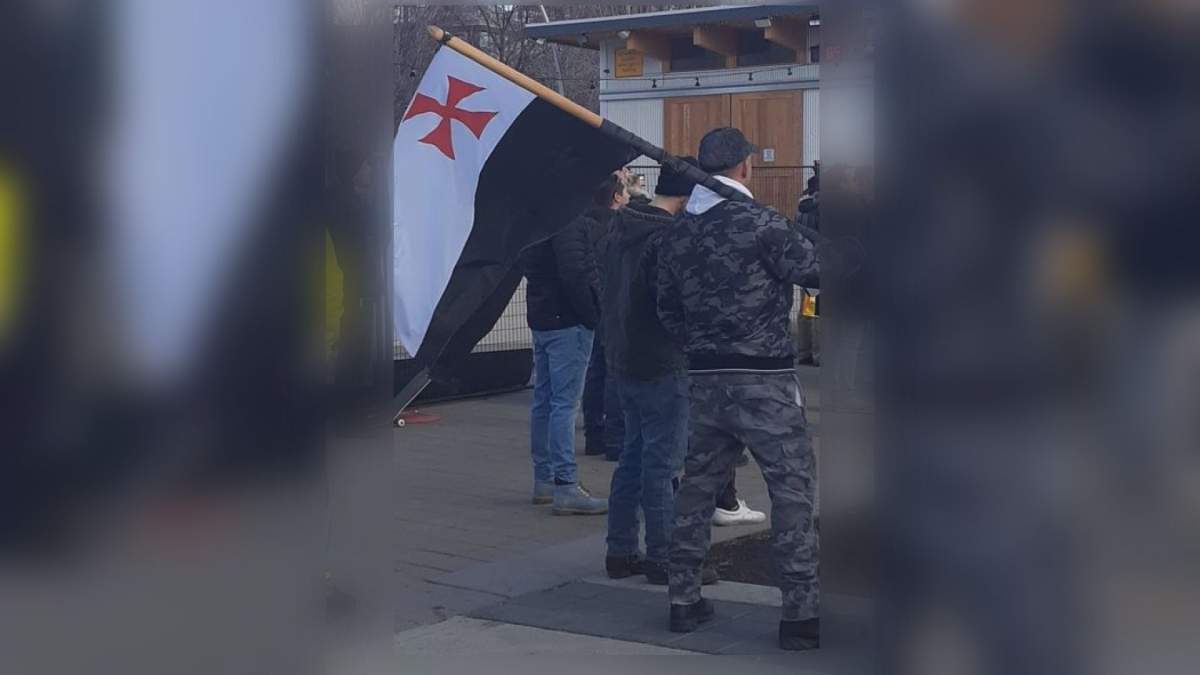After a symbol sometimes associated with white supremacy showed up at a Kelowna anti-mask rally, Global Okanagan looked into how right-wing extremists are getting involved in the demonstrations nationally.

University of Toronto PhD candidate Aden Dur-e-Aden has been following extremist involvement with anti-mask and anti-lockdown demonstrations and says she is seeing people who openly identify with extremist ideology showing up.
“They are not trying to hide who they are, but when they are at these protests the rhetoric that they use becomes one of anti-government lockdown, anti-masking policy and not that of racial or gender discrimination at the moment because they know this is what the protest is happening for,” Dur-e-Aden said.
“In some of these rallies I’ve seen individuals — not a particularly large number, but some individuals — who are very active in the right-wing extremist movement in Canada actually travel across provinces to show up in an anti-mask or an anti-lockdown protest in a different province.”
Dur-e-Aden studies how people end up joining right-wing extremist groups and sees the two ideas coming together as a cause for concern.

Get daily National news
She believes having extremists show up at anti-mask or anti-lockdown rallies could introduce radical ideologies to a new audience.
“There is a possibility these right-wing extremists can insert their ideology in some of the people who might just be anti-maskers can get attracted towards it,” she said.
Meanwhile, Garth Davies, an associate professor of criminology at SFU, believes the interconnection goes further, and in some cases, the two viewpoints are merging.
“Underlaying the anti-lockdown movement are the same kind of concerns that we see addressed or specified in extreme-right circles. We are talking about: fear of government overreach, conspiracy theories related to everything from the vaccine movement to 5G to it’s all about Bill Gates,” Davies said.
“Those narratives are melding, they are being used by the far right, they are being used by the anti-lockdown crowd.”
Davies, who studies radicalization, feels the two viewpoints may be bolstering each other.
“They are feeding each other and they are providing momentum for each other so I think therein lies the concern,” Davies said.

Davies believes the best response to the trend is to have respectful conversations about the issues at hand.
He argues people should avoid unnecessarily shaming others over anti-mask sentiments.
“I think the best we can do is try to give people the voice that they need but continue to try and move those conversations in ways that go back to…science,” Davies said.
The issue came to public attention locally after a Knights Templar flag was spotted at a Kelowna anti-mask rally in late November.
The Canadian Anti-Hate Network says medieval Christian and Templar imagery has been co-opted by white supremacist groups, but Templar images aren’t inherently associated with hate.
Knights Templar iconography is often used as a reference to the Crusades.



Comments
Comments closed.
Due to the sensitive and/or legal subject matter of some of the content on globalnews.ca, we reserve the ability to disable comments from time to time.
Please see our Commenting Policy for more.